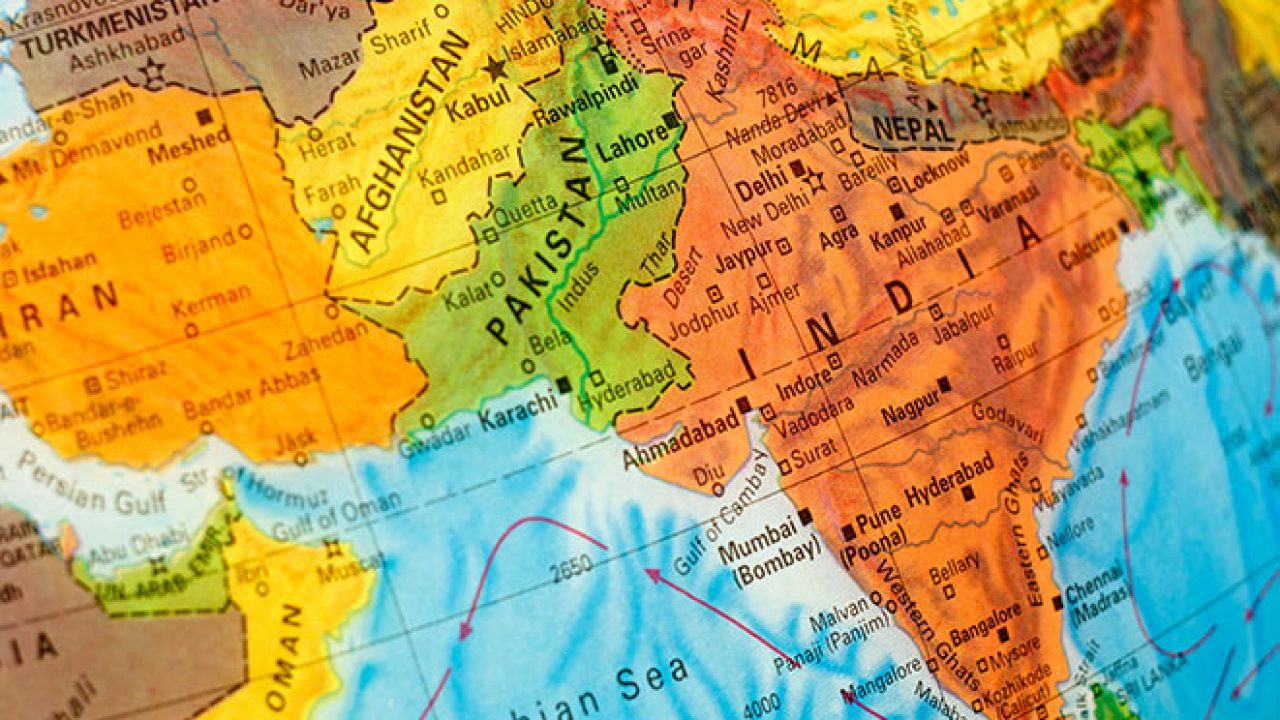
By Irfan Ali 18 August 2020
In recent years, the emergent regional dynamics of South Asia have made it more significant at the international level. This is primarily because of the complexity of the territorial conflicts between India and Pakistan which poses threats to international security in general and regional security in particular. At the same time the economic potential which South Asia offers in the form of CPEC under China’s BRI initiative, and India’s relevance as a big market for the US holds immense significance. Unfortunately, the overall security calculus of the region is very much affected by India’s aggressiveness towards Pakistan. For instance, in recent years, Prime Minister Modi’s extremist policies have become the real bone of contention for the whole region. In this regard, the Pulwama-Balakot crisis of 2019 is a clear manifestation of India’s aggressive mindset under his leadership. Simultaneously, Indo-China’s recent standoff in the Ladakh region, provoked by India also indicates this notion. This has further intensified the sense of insecurity, mistrust, and animosity between the two countries. Such a complex regional security environment, triggered by India would likely dominate the dynamics of escalation and war in South Asia along with a prospective fear of nuclear war.
Out of all the issues between India and Pakistan, Kashmir remains the long-standing issue. Security experts around the world view it as a ‘nuclear flashpoint’ between both the countries. On the other hand, the South Asian region has been facing non-traditional security threats as well. These include; food security, human security, environmental degradation, water crisis, and bio-threats, for instance, the COVID-19. Significantly, the global outbreak of COVID-19 has made non-traditional security threats even more relevant. South Asia also remains vulnerable to such non-traditional threats. Aside from all these factors, the South Asian region has been under the focus of prominent international players like the US, Russia, and China, based on their economic and strategic interests. The keen interests of these extra-regional global powers have also further complicated the security and political dynamics of the region. Particularly, Indo-US strategic partnership based on enhanced military and nuclear cooperation has disturbed the balance of power in the region considerably. This would ultimately destabilize the whole region while having long-lasting implications for Pakistan’s security at the traditional level.
To further analyze, it would be important to discuss how Pakistan has been facing severe security challenges at its eastern and western borders simultaneously. Both India and Afghanistan have been trying to harm Pakistan’s interests for long. In this regard, India’s extremist and hawkish policies have been intensified in recent years. For instance, Prime Minister Modi has several times threatened Pakistan with the use of nuclear weapons. Moreover, quite recently, following his jingoistic approach he became so aggressive by saying that India could defeat Pakistan within seven to ten days. In the same vein, the revocation of Articles 370 and 35A of the Indian constitution along with continuous violation of Line of Control (LOC) by India has made the region more vulnerable to conflict.
India has also initiated an information war against Pakistan under which it has been defaming Pakistan at various international forums. By doing so, it has been blaming Pakistan as a sponsor of terrorist activities in the region. For instance, the Pulwama attack of February 2019, despite the Indian propaganda against Pakistan, many in the world believe that it was an Indian false flag operation. Nevertheless, the fact remains that it is the other way around, as India itself is involved in terrorist activities inside Pakistan through its agency RAW. This is further evident from the arrest of Indian Spy Kulbhushan Jadhav, a serving officer of the Indian Navy, by Pakistan’s security forces. Likewise, there are shreds of evidence that the recent attack on the Pakistan Stock Exchange (PSX) building in Karachi was also backed by the RAW. Furthermore, an extensive increase in the Indian Defence budget every year indicates that it aspires to dominate the region militarily. Such Indian aspiration of attaining the regional and global power status has over the years destabilized the region.
In the west, Pakistan shares a border with Afghanistan, which is known to be the battle hub of the ‘global war against terrorism’ and civil war for the last few decades. Furthermore, the Indian presence in Afghanistan is also aimed at destabilizing Pakistan. In this regard, the Indo-Afghan nexus poses a serious threat to Pakistan’s security. This is evident; as various terrorist activities inside Pakistan in the recent past have their backing and facilitation being done from Afghanistan. Surprisingly, Indian presence has been more observed in the areas near the Pakistan border. Contrary to such an approach by Afghanistan, Pakistan is still bearing the burden of reportedly 2.7 million Afghan refugees. According to various official reports, these refugees have been a socio-economic burden on Pakistan’s society. Moreover, these refugees have been involved and facilitated various terrorist activities inside Pakistan. Consequently, the country has suffered huge socio-economic and human loss, thus posing a serious threat to the internal security of Pakistan.
Hence at the present, the Hindutva lead extremist policies of India and its nexus with Afghanistan have overtly threatened Pakistan both externally and internally. The above-mentioned dynamics of security in South Asia in recent years further justify this perspective. Pakistan still believes in its principled stance of promoting peace and stability in the region and has been putting its serious efforts. In this regard, India needs to think rationally instead of following RSS and Hindu nationalist policies. Moreover, it is the responsibility of all regional states particularly India to work for promoting peace in the region. This seems to be the only way to ensure regional security and ultimately make it a prosperous region.
The writer is working as a Research Associate at the Strategic Vision Institute (SVI), a non-partisan think-tank based out of Islamabad, and Ph.D. scholar in the Department of Defense and Strategic Studies, Quaid-i-Azam University Islamabad, Pakistan.
